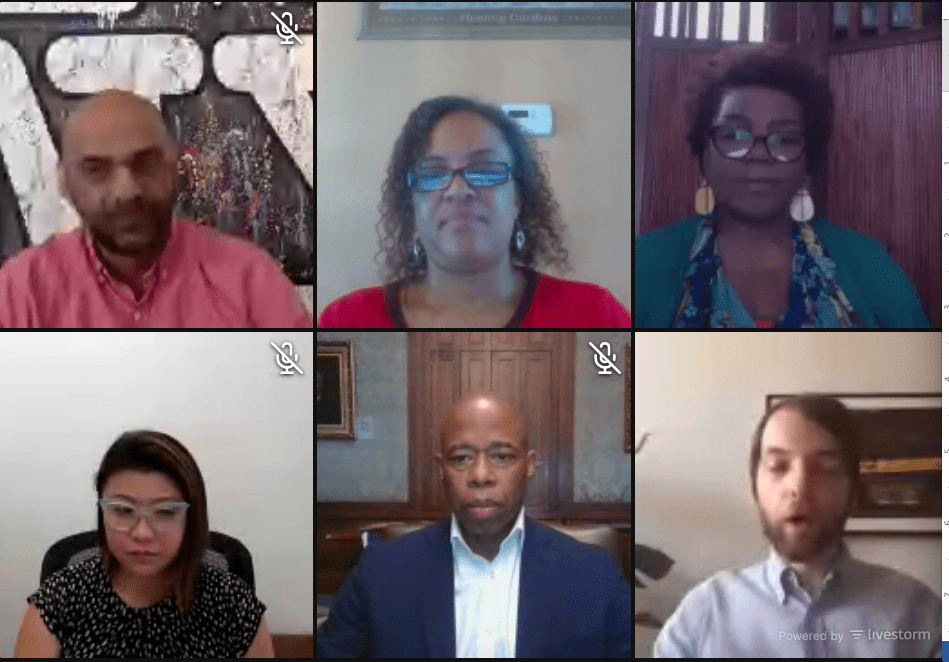Around half of all Brooklyn businesses are owned by immigrants. Nearly one-third are minority-owned, and there are more Black-owned businesses in Brooklyn than in any other borough.
Although many of these businesses have been growing over recent years, many have been hard-hit by the coronavirus pandemic and its restrictions, and are facing several uncertainties in the coming months as they prepare to reopen.
On Wednesday, Center for an Urban Future held a virtual policy symposium focused on how to help immigrant- and minority-owned Brooklyn businesses rebound from the impacts of the coronavirus pandemic.
Brooklyn Borough President Eric Adams spoke at the symposium. He said $1 million should immediately be given to the chambers of commerce, and more should be given to Community Development Financial Institutions (CDFIs), so those organizations can further support local businesses.

"Essential employees should have their own package, a stimulus package that specifically targets that community," Adams said.
He said many immigrant- and minority-owned businesses were in service trades, like food and hair, and the city should be looking at different ways to support them, including repurposing businesses to support reopening efforts, he said.
"We need to look at fall out and specifically zero on in on communities hardest hit and [consider] our essential employers and employees. That is where our focus must go at this time, and government needs to ask, 'What do you need?'."
For many immigrant- and minority-owned businesses, government aid has been hard to access, panelist and Renaissance EDC Managing Director Jessie Lee said.
Renaissance EDC is a CDFI, which lends capital and helps businesses navigate the financial system. She said minority- and immigrant-owned businesses often experience great difficulty working working with big banks, not having previous lending arrangements, or overcoming language barriers, amongst other issues.
Lee said CDFIs provide special support and assistance, showing immigrant and minority business owners they were not alone.
"30 percent of New York's immigrant population lives in Brooklyn," she said. "They make the diversity of Brooklyn, and the flavor they bring makes the borough so popular."
Senator Roxanne Persaud said many Brooklyn businesses in her district had been shuttered for months and were asking for relief, not loans. Many had told her they could not afford to reopen.

Senator Persaud said government was looking at ways it could get grants and assistance to immigrant and minority-owned businesses. "Small businesses are what the community relies on, and they are also social hubs that we cannot afford to lose," she said.
Other speakers included TruFund Financial Services Executive Vice President Aisha Benson, BK Jani Owner Sibté Hassan, HSBC National Sales Manager Business Banking and Senior Vice President Mary Makfinsky and Just Because Salon Owner Carol Thomas.
The symposium was sponsored by HSBC and presented by CFU in partnership with Brooklyn Chamber of Commerce.



